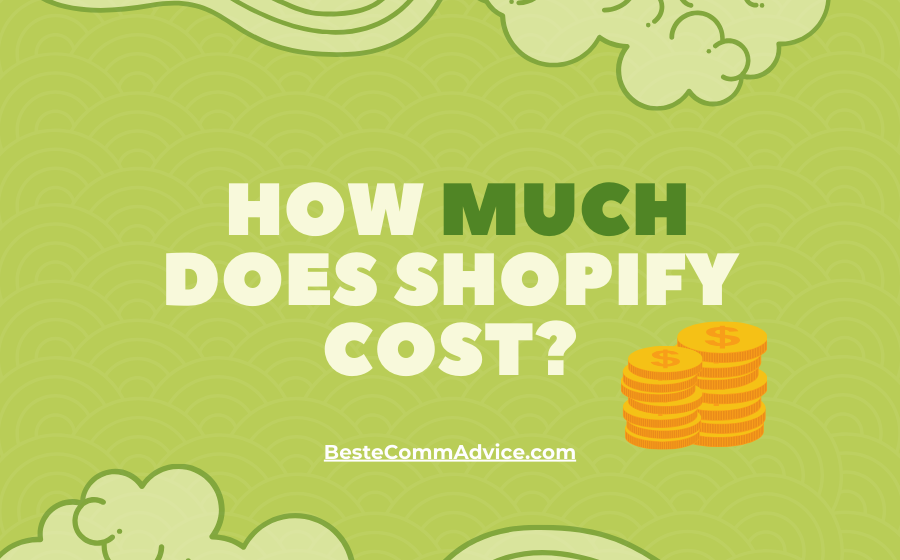
How much does Shopify cost?
20 March 2024Unveiling the Cost Structure of Shopify: Understanding Pricing Plans and Expenses
For aspiring entrepreneurs and established businesses alike, Shopify serves as a beacon of hope in the realm of e-commerce. With its intuitive platform and robust features, it empowers users to build, manage, and scale their online stores with ease. However, one question looms large for those considering Shopify: How much does it cost? Let’s delve into the intricacies of Shopify’s pricing structure to unravel this query.
Why Understand Shopify’s Cost Structure?
There are several reasons to assess Shopify’s overall costs. To begin, let us emphasize a few:
Avoiding Surprises and Hidden Costs
Beyond the basic membership options, there are additional charges associated with launching a Shopify site. Extra costs can mount up rapidly, including customizing, app connections, and transaction fees. Understanding all costs involved in advance is essential to preventing financial emergencies.
Budgeting & Cost Control
By having a detailed breakdown of Shopify expenses and making sure there are enough resources for marketing, inventory control, shipping, and other important online shop functions, entrepreneurs can invest money wisely. Afterwards, you can make a budget that you can adhere to, which will help you manage expenses.
Business Goals & Strategies Alignment
Through an understanding of its pricing structure, entrepreneurs may determine whether Shopify is a good fit for their company. Additionally, they can assess whether Shopify’s price plans, transaction fees, and other expenses are long-term compatible with their brand.
Informed Financial Decision Making
Making informed decisions about your spending and financial commitments is made easier when you are aware of Shopify’s pricing structure as well as that of its rivals. If you are aware of the particular expenses connected to each platform, you may effectively organize your spending.
Platform Value & ROI Comparison
You’ll know Shopify’s worth and how it stacks up against the competition once you know how much it costs. In a similar vein, understanding your investment amount will aid in determining your return on investment (ROI).
Right Shopify Plan Selection
To choose the package that best suits your needs, consider your sales volume and business requirements. Costs can be optimized by upgrading or downgrading programs in accordance with the evolution of your firm.
Shopify Payments Leverage
Examine the advantages of reducing transaction fees using Shopify Payments. But be aware of its accessibility in your area and any additional fees associated with making overseas transactions.
Smart App Usage
Choose carefully when installing Shopify apps, even though they can improve the functioning of your store. Give high-value free or inexpensive apps priority, and periodically check your app subscriptions to cut down on any unused costs.
Shopify Pricing Plans
Shopify offers a variety of pricing plans tailored to meet the diverse needs of businesses at different stages of growth. Here’s a breakdown of the core pricing plans:
Basic Shopify
Priced at $29 per month, Basic Shopify provides essential features for starting a new online store. It includes features such as website and blog creation, unlimited products, 24/7 support, discount codes, and abandoned cart recovery.
Shopify
At $79 per month, the Shopify plan offers additional features compared to Basic Shopify. These include professional reports, gift cards, and more advanced reporting capabilities.
Advanced Shopify
Designed for scaling businesses, the Advanced Shopify plan costs $299 per month. It includes all the features of the Shopify plan, along with advanced report builder functionality and third-party calculated shipping rates for real-time carrier shipping.
Shopify Plus
Tailored for enterprise-level businesses, Shopify Plus offers custom pricing based on specific requirements and business needs. It provides advanced features such as dedicated account management, customizable checkout, and access to exclusive APIs.
Additional Expenses
While the pricing plans outlined above cover the core features of Shopify, it’s essential to consider additional expenses that may arise:
Customization and Design
While Shopify provides a wide range of customizable themes for your online store, you may choose to invest in premium themes or hire a designer to create a unique and tailored look for your brand.
Domain Name
While Shopify offers a free myshopify.com domain for your online store, you may opt to purchase a custom domain name for a more professional and branded appearance.
Marketing and Advertising
Building and growing your online store may require investments in marketing and advertising campaigns to attract customers and drive sales. These expenses can vary depending on your chosen strategies and platforms.
Third-Party Apps and Add-Ons
Shopify’s App Store offers a plethora of third-party apps and add-ons to enhance your store’s functionality. While many apps are free or offer basic versions at no cost, some may require a subscription fee or one-time purchase.
Transaction Fees
Depending on the pricing plan you choose, Shopify charges transaction fees on each sale made through your online store. These fees range from 2.9% + 30¢ for online credit card rates (Basic Shopify and Shopify plans) to 2.4% + 30¢ for Advanced Shopify. However, if you use Shopify Payments as your payment gateway, you can avoid additional transaction fees.
How To Choose the Right Plan?
When selecting a Shopify pricing plan, it’s crucial to consider your business’s size, budget, and specific requirements. Start with an assessment of your current needs and projected growth trajectory to determine which plan aligns best with your goals. For small businesses and startups, Basic Shopify offers an affordable entry point with essential features to kickstart your online venture. As your business grows, you can upgrade to higher-tier plans to unlock more advanced capabilities and scalability.
Ultimately, while the cost of Shopify may vary based on your chosen plan and additional expenses, it’s essential to view it as an investment in the future success of your e-commerce business. With its comprehensive features, reliable support, and flexibility, Shopify provides a solid foundation for turning your entrepreneurial dreams into reality.
.png)